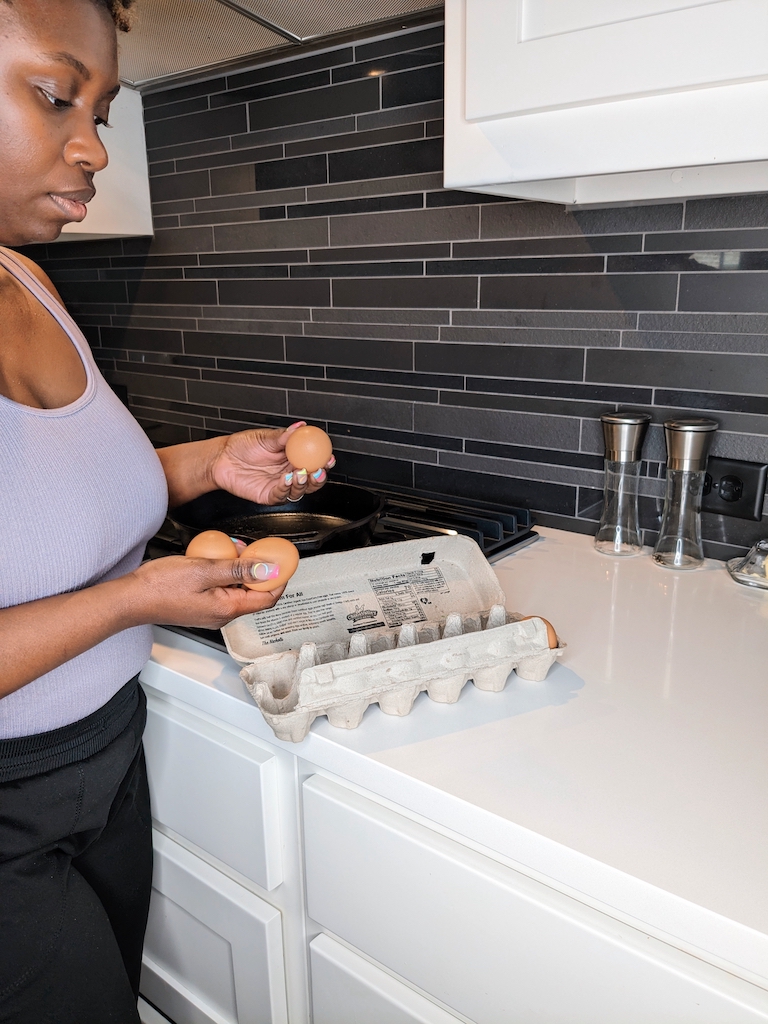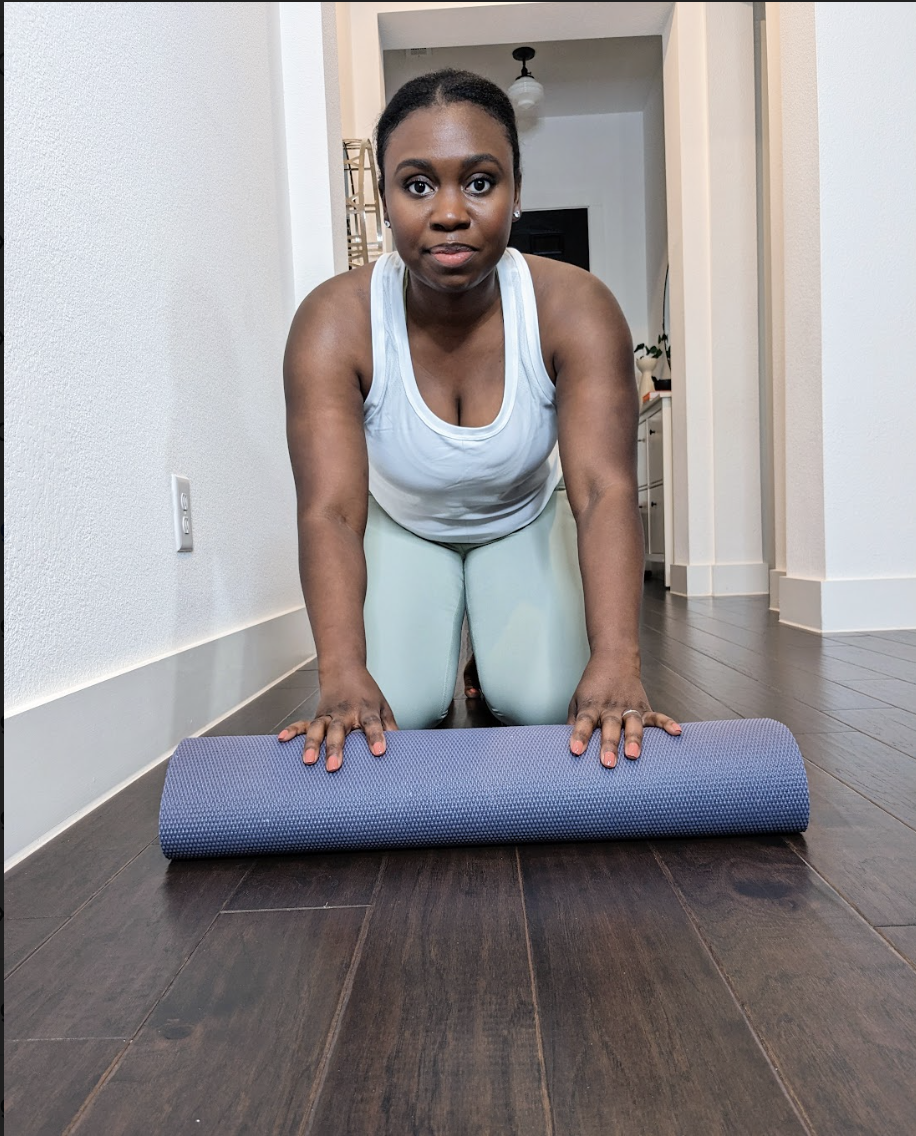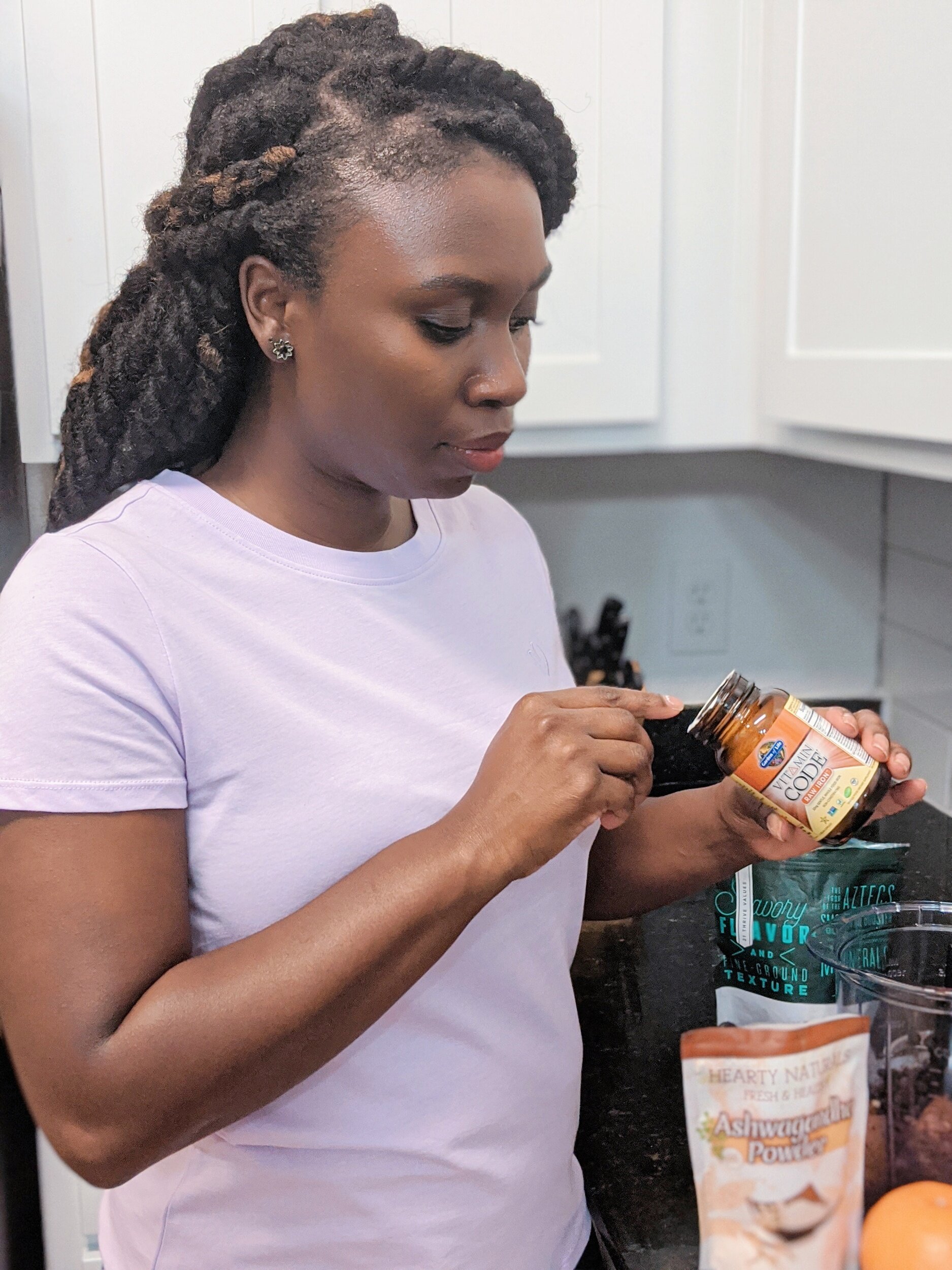Is Stress Making Your Uterine Fibroid Symptoms Worse?
There are several risk factors for uterine fibroid growth, but did you know that stress is often one of the most overlooked contributors to fibroids? That’s right, stress can make fibroid symptoms worse as well as contribute to increased fibroid growth.
In my experience working with women with fibroids, many are aware that they need to make lifestyle changes including dietary changes, begin exercising, or even take certain supplements. However, many miss the fact that the growth of fibroids might have just as much to do with emotional stress and physical stressors as much as other external factors.

Common symptoms of fibroids include heavy bleeding or heavy periods, pelvic pain, and even frequent urination depending on the size and location of your fibroids. And while these are considered benign tumors, anyone experiencing severe symptoms would tell you that the experience is anything but benign.
Now that we understand a bit more about fibroids and their contributors, many women may experience relief by changing their diets and reducing their chemical exposure. However, there should be more emphasis on dealing with chronic stress when it comes to your risk of fibroid tumors as well as other hormone-related issues.
Free cycle syncing cheat sheet.

How does stress impact hormones?
Stress triggers the release of certain hormones, including cortisol. When certain stress hormone levels rise it can increase your risk for other conditions and hormonal imbalances, including estrogen dominance. Estrogen dominance has been linked to several conditions including fibroids and heavy menstrual bleeding.
Since fibroid development seems to be a little more complicated than a singular cause, it’s important to tackle several aspects of your overall health. So, while stress by itself is probably not the only cause of fibroids, stress can cause fibroid symptoms to increase.
Tips to Reduce Stress
Most people think about stress from the perspective of your mental state, but in actuality, stress factors can be physical or mental. To reduce and manage stress, it’s important to tackle stress factors that address both mental stress and physical stress. My favorite stress reduction techniques are simple, cost-effective, and can be built into your daily routine.

1. Become a planner.
Ever notice that stress and anxiety tend to creep in along with the unexpected? Of course, you can’t plan for everything that happens in life. However, taking a proactive approach to your daily life will help you feel prepared. Even becoming proactive and organized in just one area of your life can reduce feeling out of control.
Consider the stressors in your life. Is there a point in the day where things always seem chaotic? Are there tasks that seem to evoke negative feelings? Create a plan to manage these areas of your life ahead of time. Or skip them altogether if possible.
My favorite way to organize and plan everyday life events is to use a planner. Here, I can write down any important tasks, events, meetings, etc. that I need to keep track of. It’s a game-changer for sure!
2. Reconsider fasting.
I bet you weren’t expecting this one since fasting and skipping meals are part of many health trends. Not only do certain foods cause inflammation, but the timing of your meals can also create stress. Skipping meals can actually signal to your body that you’re in distress. Which can lead to more stress hormones being released.
Consume a balanced diet with meals that include adequate amounts of protein, healthy fats, and fibrous carbs.

3. Stick to easy-to-digest foods.
Another thing to consider when choosing a healthy diet is how easily you can digest foods. If you notice your digestion is a bit sluggish or find yourself bloated after every meal, it may indicate that you need to reconsider some of the foods in your diet. Even some foods that are typically considered healthy may be difficult to digest.
4. Ditch the intense workouts.
Maintaining a healthy weight can reduce your risk for fibroids. So, it’s no surprise that regular exercise can help with symptomatic fibroids and painful periods. Light to moderate exercise for up to 30 minutes a day may help the body flush excess hormones and toxins. On the other hand, too much intense exercise may encourage your body to make more stress hormones.
What’s even more beneficial is movement throughout the day. For example, take breaks every hour or two to get up from your desk and stretch or walk.
5. Develop a hobby.
Seriously. A hobby is anything that you enjoy or find interesting that you want to explore. It doesn’t have to have a purpose. And you don’t even have to be good at it.
Taking the time to do something simply for enjoyment helps to create some balance against some of your more stressful obligations.
6. Make sleep a priority.
Sleep is often an overlooked part of a healthy lifestyle. Adequate, quality sleep is one of the most healing things you can do for your body. Sleep allows the body to regenerate and recuperate from some of the stress you’ve experienced.
7. Seek therapy or counseling.

A qualified mental health professional can assist you with stress management techniques and different stress management methods. Sometimes these services are pricey or may not be covered by insurance. So, support groups may be another free or inexpensive option to help you manage specific mental health concerns.
8. Try prayer, mindfulness, or relaxation techniques.
Meditation and breathwork are like exercise for the brain. It helps you to prepare for situations you have little to no control over. It can also help you recover from the stress of those types of situations.
Personally, I find comfort in prayer as a way to release some of my cares to God.
Simple Habit is one of my favorites for beginner-level meditations.
Stress management as part of fibroid management
Even if you’ve opted to have fibroid surgery to remove large fibroids, it’s still important to adopt a holistic wellness plan for yourself to keep them away. Unfortunately, the recurrence rate for uterine fibroids is very high. The best way to continue to reduce your risk of fibroids is to make long-term, sustainable lifestyle changes.






